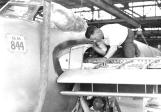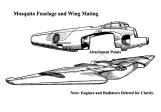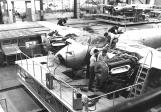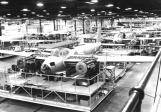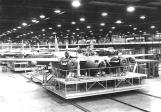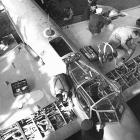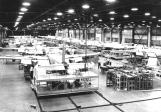21
Even before the mechanized production line was set up, Mosquito production topped 80 per month. This was double the production planned for in 1942. The main reason was that all of the many sub-contractors and suppliers were producing at last, and materiel was pouring into Downsview. The bottleneck at Flight Test was resolved by sending Mosquitos down to Central Aircraft in London, Ontario, for the bulk of the testing and modification programs. If the war had gone on for another year, de Havilland Canada might have doubled its Mosquito output.At one point fuselages started piling up in the shed south of Bay 3. Fred Hotson wrote in his book on de Havilland Canada that a female worker set up a temporary branch of the world's oldest profession in this shed. Word around the plant was that you could do business at "the second fuselage from the end". Another plant sport, wrote Hotson, was petty larceny. Despite the high level of wartime security, some workers figured the government could not possibly use all the stuff up at Downsview, and since they were not paid nearly enough they should have some. The Stanley Cup of pilfering was to get a heavy metal vise past the guards. One guy wrapped a vise up in paper and stuck two turkey legs out the end. He told the guards he won a turkey in a raffle. Then the vise fell out onto the floor.
